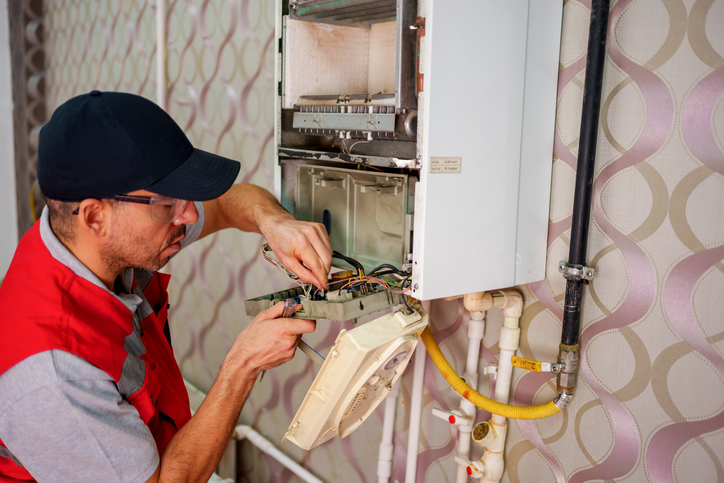Introduction
Household heating systems are essential during colder months, but inefficient or poorly maintained units can contribute significantly to energy waste and carbon emissions. Dust buildup, worn components, and restricted airflow force heaters to work harder, consuming more fuel and increasing environmental impact. Professional heating maintenance in Ellicott City, MD, addresses these issues by keeping systems clean, well-tuned, and energy-efficient. Regular maintenance not only reduces carbon output but also improves comfort, lowers utility bills, and extends the life of the equipment. By taking proactive steps, homeowners can contribute to a cleaner environment while enjoying reliable warmth and better performance from their heating systems.
Cut Carbon Fast with Regular Heating Maintenance
1. Removing Dust and Debris to Improve Efficiency
Accumulated dust and debris in heating units restrict airflow and reduce heat transfer, forcing systems to consume more fuel to maintain desired temperatures. Components like burners, coils, and filters become less effective over time without proper cleaning. Maintenance services include thorough cleaning of these areas, restoring proper airflow and combustion efficiency. Cleaner systems burn fuel more efficiently, reducing unnecessary energy consumption. By minimizing wasted energy, homeowners directly reduce carbon emissions associated with heating their homes.
2. Calibrating Thermostats and Controls
Heating systems rely on accurate thermostats and control mechanisms to operate efficiently. Malfunctioning or poorly calibrated thermostats can cause the system to overheat or run longer than necessary, increasing fuel usage. Maintenance professionals adjust settings, test responsiveness, and replace faulty sensors to optimize operation. Proper calibration ensures the system only works as needed, lowering energy consumption and associated emissions. Accurate control also improves comfort, maintaining stable indoor temperatures without excessive environmental impact.
3. Inspecting and Replacing Worn Components
Worn-out parts such as belts, motors, and burners reduce a heating system’s efficiency and can lead to incomplete combustion or leaks. These issues force the system to work harder, consuming more energy and producing higher carbon emissions. During maintenance, technicians inspect critical components and replace or repair those showing signs of wear. Upgrading key parts improves overall system efficiency, reduces fuel consumption, and lowers greenhouse gas output. Regular component replacement helps prevent sudden breakdowns, keeping emissions consistently low throughout the heating season.
4. Optimizing Airflow and Ventilation
Proper airflow and ventilation are crucial for efficient heating and minimal environmental impact. Blocked ducts, clogged vents, and restricted airflow make systems less efficient, increasing fuel usage and carbon output. Maintenance involves cleaning ducts, checking vents, and balancing airflow across the system. This optimization allows the heating unit to operate at peak efficiency while reducing unnecessary emissions. Improved airflow also enhances indoor comfort, providing more consistent warmth with less energy use.
5. Supporting Sustainable Energy Use
Heating system maintenance contributes to broader energy conservation goals by reducing fuel consumption and lowering the home’s carbon footprint. Efficient systems require less electricity or gas to maintain warmth, decreasing reliance on fossil fuels. Regular upkeep extends the life of equipment, delaying the need for replacements and reducing resource consumption associated with manufacturing new units. Homeowners who invest in maintenance not only save on energy costs but also make a meaningful impact on environmental sustainability. Well-maintained systems offer a practical way to contribute to cleaner air and a healthier planet.
Heating unit upkeep is a critical factor in reducing carbon emissions from household systems. Cleaning, calibrating, and repairing key components improves efficiency and lowers energy consumption. Optimized airflow and accurate controls further reduce environmental impact while maintaining comfort. Routine maintenance prolongs system life and delays the need for replacements, conserving resources. Homeowners who prioritize professional heating upkeep contribute to a cleaner, greener, and more sustainable home environment.
Conclusion
Improve efficiency and reduce carbon emissions with expert heat pump installation in Ellicott City, MD. Call our experts at Supreme Service Today at (410) 788-1114 for professional service that keeps your home warm and eco-friendly.
📌 Supreme Service, Right Around the Corner! Get Reliable Plumbing, Heating & HVAC Help — Quick, Friendly, and Always Local.





